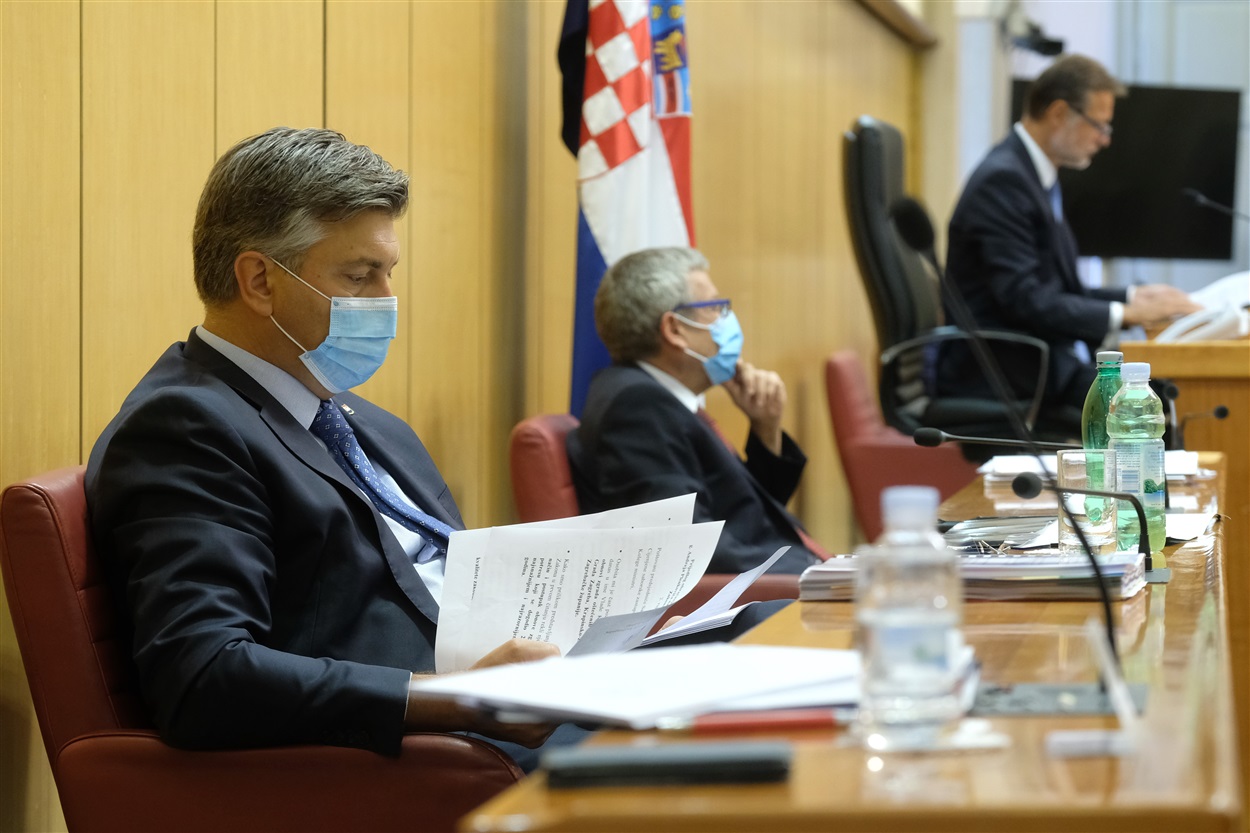
Zagreb - Prime Minister Andrej Plenković presented the final text of the bill on the post-earthquake reconstruction of Zagreb and its environs to Parliament on Wednesday, saying that people who were left homeless should be ensured a roof over their heads and that Zagreb should again be a pleasant place to live and work.
Although that is not the primary purpose of this bill, the reconstruction itself can be a chance to deal with the many unresolved infrastructure problems and to open a discussion on the urban development of Zagreb, the Prime Minister said.
He called on the MPs to rise above party politics and seize the opportunity to create a law that would be good, transparent, fair and feasible.
26,000 buildings damaged in earthquake
The March 22 earthquake has been the most destructive in the last 100 years and the damage caused is estimated at HRK 86 billion, which is about 60% of the state budget and surpasses anything Croatia has experienced, Plenković said.
Some 25,000 buildings were damaged in the City of Zagreb, 510 in Zagreb County and 409 in Krapina-Zagorje County, or nearly 26,000 buildings in total. About 1.5% of them are public buildings and 98.5% are privately owned.
The Prime Minister recalled that after the earthquake the Government and all relevant services responded quickly to take care of people worst affected by the disaster, assessing the damage, preparing documentation for international financial aid and putting together a legal framework for long-term reconstruction.
Principles for long-term reconstruction
The bill lays down the principles and rules for long-term organised reconstruction involving all relevant professions.
"I am confident that the final bill will provide a good foundation for reconstruction and meet the expectations of citizens who suffered damage in the earthquake and of the public at large," Plenković said, adding that he expected broad support from lawmakers.
The bill provides for the reconstruction of buildings that have been declared unusable or temporarily unusable. The structural reconstruction will be financed from the state budget, the local government budgets and other sources, as well as by owners themselves.
The Government will provide 60% of the funding for the structural reconstruction of private buildings, while local government units and owners will each contribute 20%.
Social criteria
What is new compared to the first reading is the introduction of social criteria, namely means testing. The government and local government units will fully finance the structural reconstruction of properties owned by citizens who receive the minimum wage and are without significant assets.
Property owners whose monthly income does not exceed HRK 4,000 and those whose property was worth less than HRK 200,000 on the day of the earthquake will also be entitled to free reconstruction. This will also apply to disabled Homeland War veterans and welfare beneficiaries who receive maintenance support.
Plenković said that the Government would consider extending this entitlement to all persons with disabilities. He noted that in the case of public buildings, the reconstruction would be fully financed by their owners, that is the founders of the public institutions in question.
"The first programme of measures is in a final stage and we plan to adopt it even before the expiry of the deadline of 30 days after the entry into force of this law. The Reconstruction Fund and the Advisory Council on Reconstruction will also be established before this deadline," the Prime Minister said.
All information on spending to be publicly available
Plenković said that the Reconstruction Fund would not be just a financial fund but also a central institution in charge of all reconstruction-related operations.
He said that special attention would be devoted to transparent spending of funds. "With the aid of information technologies, all information on the funds spent will be publicly available."